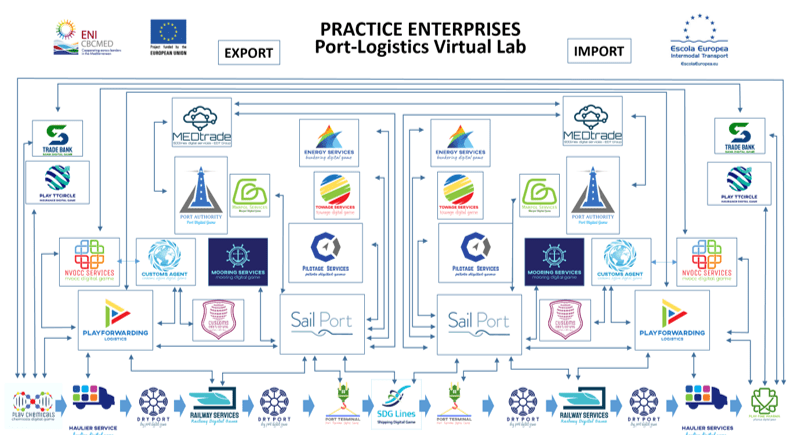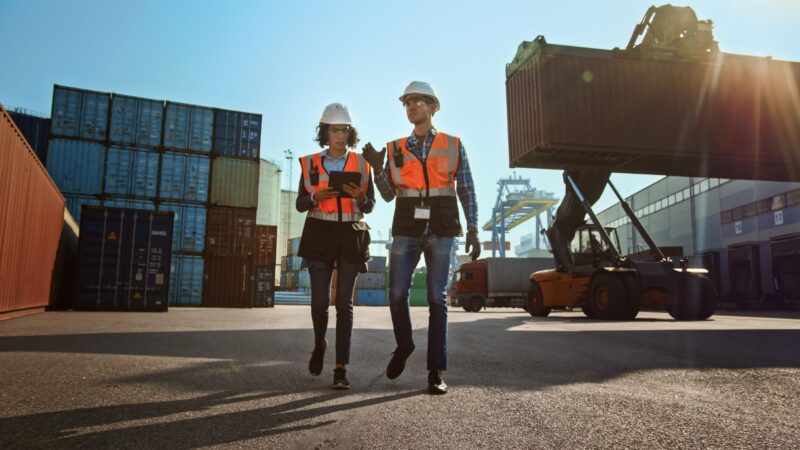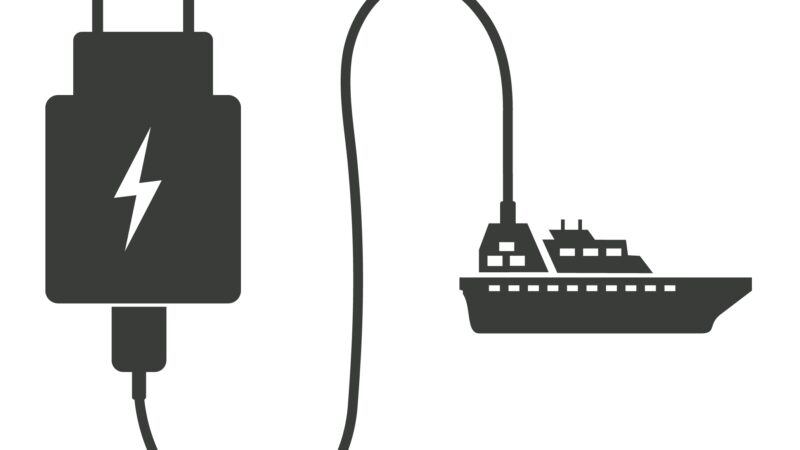 Although the trigger for YEP MED and TECHLOG is their implementation in the Mediterranean region, the potential and scope of simulation goes far beyond. (GettyImages)
Although the trigger for YEP MED and TECHLOG is their implementation in the Mediterranean region, the potential and scope of simulation goes far beyond. (GettyImages)
Simulation and virtual reality: this is the new education in logistics
The latest trend in education is to test a virtual logistics chain with avatars. Is this an embryo of the metaverse applied to logistics?
 Although the trigger for YEP MED and TECHLOG is their implementation in the Mediterranean region, the potential and scope of simulation goes far beyond. (GettyImages)
Although the trigger for YEP MED and TECHLOG is their implementation in the Mediterranean region, the potential and scope of simulation goes far beyond. (GettyImages)
The revolution in port logistics training has arrived. It’s simulation. But not only applied to the handling of means of transport or heavy machinery, as has been the case until now. Driven by the YEP MED (Youth Employment in Ports of the Mediterranean) and TECHLOG (Technological Transfer for Logistics Innovation in Mediterranean area) programmes, this simulation is 'total' and covers the entire logistics chain.
"The main difference with what has been done so far are the so-called serious games, which are simulators for ordinary operational environments. They don’t recreate scenarios that can happen when handling a vehicle but in a whole sector," explains Eduard Rodés, director of the Escola Europea - Intermodal Transport.
This total simulation allows students to learn how to manage operations in simulated companies and to be better prepared when they enter a real company.
Advantages of a 'total' simulation in logistics education
The three main areas of education proposed by YEP MED are those in which a skills gap has been identified: foreign trade, environment and sustainability, digitalisation and port logistics operations.
"This is a market that has traditionally experienced more demand than supply. Many companies have asked us to create an employment bank because they realise that, once they finish their studies, the students already know how to execute the operations," adds Rodés.
The use of simulators and virtual reality allows:
- Gain work experience in remote and risk-free environments.
- Encourage more effective problem solving by experiencing various real-life scenarios.
- Facilitate the construction of more sustainable and socially responsible logistics chains. During the apprenticeship, students can choose operational criteria and test the consequences of their decisions. For example, prioritising on-time delivery or cost reduction.
Port Virtual Lab, the international platform set up from Barcelona
In 2020, Escola Europea, a participant in YEP MED and TECHLOG, launched a tender to identify an ERP (Enterprise Resource Planning System) company to develop the system underpinning the virtual training paradigm it was creating for the youth program: the Port Virtual Lab.
"Due to the pandemic, the students were not able to do internships. The Escola decided to adapt the projects to this virtual environment and the result is this learning platform that we make available to the countries taking part in these programmes," says Rodés.
In this training, students become employees of the constellation of companies that cover the entire supply chain, integrated into the platform as independent companies: a freight forwarding company, a shipping, airline and railway companies, and a port terminal.
Each has its own website, with real-time information on incoming and outgoing vessels, available routes, services, equipment, fleets or types of containers that can be contracted. The students access the back office and are in charge of managing the entire operation, as if they were freight forwarders and consignees.
"The student has to build the entire logistic chain and manage all aspects, such as requesting quotes, bookings, preparing and sending the relevant documentation, communicating with the other companies to book, ship and receive the cargo. The companies are avatars, not digital twins," he says.
The degree of realism is such, says Rodés, that these companies have been contacted from the 'real world' to request their services.
For its development, the director of the Escola Europea explains that they had to rely not only on technical profiles in programming, but also on experts in the sector capable of foreseeing any possible scenario within the complex supply chain.
In this training, students become employees of the constellation of companies covering the entire supply chain, integrated into the platform as independent companies
Ports, the essential partners
Regarding the ports, eight are involved in YEP MED. Barcelona and Valencia (Spain) , Autorità Portuale Mar Tirreno Centro Settentrionale (Italy), Port de Marseille-Fos (France), Damieta Port Authority (Egypt), Office de la Marine Marchande et des Ports (Tunisia), Aqaba Development Corporation (Jorda) and the Beirut Chamber of Commerce, Industry and Agriculture (Lebanon).
"The development of trade has changed enormously in recent years. Purchasing patterns and the configuration of shipments have also changed. Export and import operations have multiplied and ports are the hubs for dispatching and receiving physical goods. They are therefore changing their configuration, especially in their logistics activity zones. This new type of shipping requires new added value in cargo handling," says Eduard Rodés.

Port-logistics companies are beginning to form part of these environments, with departments and professionals dedicated to innovation. Generating spaces and opportunities to test these disruptive solutions is not a simple decision, Rodés assumes. However, investing on risk based on trust, commitment and cooperation benefits all parties.
"The Port of Barcelona is well aware that this is a very important collaborative tool, whose reach and impact is enormous. Rapid obsolescence means we have to constantly reinvent ourselves," he reflects.
A framework for international and inter-port collaboration and cooperation
The Port Virtual Lab platform is the common learning framework for the 7 Mediterranean countries participating in the project: Spain, Italy, France, Lebanon, Egypt, Tunisia and Jordan. Students work remotely and virtually in international teams. The teaching staff is also from these countries.
Although the trigger for the project is its implementation in the Mediterranean region, the potential and scope of the simulation goes beyond.
Rodés explains that a delegation from the Escola, which will also represent the Institut de Logística de Barcelona and the University of Barcelona, will travel to Thailand at the end of October on a mission organised by the Port of Barcelona to establish agreements with local institutions.
The aim is to introduce simulation in universities and vocational training centres to virtualise future export and import operations between the two countries, in collaboration with FETEIA, the Spanish Federation of Freight Forwarders.
He adds that in October the Escola, represented by the University of Barcelona, will attend the congress organised by the Federation of National Associations of Freight Forwarders and International Logistics Operators of Latin America and the Caribbean (FANLAC), to start developing relations to introduce simulation to that continent.
"Thanks to simulators, we can start working virtually on the whole global logistics chain. We are certain that supply chains will improve because through simulation, each party will understand the other better, even if they are not 'real' operations," he says.
The conclusion of the YEP MED (2023) and TECHLOG (2024) programmes will not mean the end of the Port Virtual Lab. "The most complicated thing was setting up the platform. Our idea is to create a worldwide network of centres linked to the ports that use it. In Catalonia alone, 80% of companies use the Port's services at some point, they are very large communities," he says.
Eduard Rodés explains that this learning method is far from stagnating. On the contrary. There are already voices hinting that the next step will be the creation of a metaverse where not only logistical operations will be simulated, but also the relationships between professionals. "New and very attractive scenarios are opening up," he concludes.






